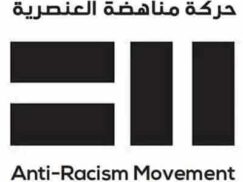UPDATES TO KAFALA
The definitive place to get the latest updates on Kafala.
They want to go home but they can’t afford the air ticket. They claim the consulate told them to go do prostitution to raise the airfare.
NPR's Leila Fadel speaks with Tsigereda Birhanu, an activist and former domestic worker in Beirut, about how that community is experiencing this tumultuous period in Lebanon.
In a world where nationalism and social division is increasing, bigotry growing, are the words refugee, asylum seeker, migrant worker, derogatory labels triggering prejudice and intolerance? Such terms create an image of ‘the other’, separate and different, strengthening tribalism, feeding suspicion, our common humanity denied.
"We weren't home at the time, so we are safe," Hanna said, speaking to CNN on the condition that her full name wasn't used. But now, she said, "anyone in the street can walk through the door and find us sleeping. We are afraid."
“Where is your bint from?” is not an unusual question in Lebanon. Bint means girl in Arabic, but, in this case, refers to housekeepers, maids or nannies working in Lebanon under the Kafala sponsorship system. It is a loaded term that refers to thousands of African and Asian workers arriving in Lebanon every year.
During Eid-al-adha celebration,Oyo State governor, Engineer Seyi Makinde has declared that the state would ensure the repatriation of all its indigenes trafficked in Lebanon.
Workers are workers, regardless of nationality or profession. No worker’s rights should depend on the goodwill or generosity of their individual employer. Our silence in the face of injustice against any worker paves the way for injustice against all workers. This year, we produced a series of short videos about the rights of all workers […]
The Kenyan government said Wednesday that it will send officials to Beirut to investigate reports of mistreatment of Kenyan women.
The Kenyan government will probe cases of mistreatment over at the Beirut consulate, Lebanon.
Mahlet Tadesse, a 20-year-old domestic worker is one of hundreds of Ethiopian migrants forced to return home from Lebanon after being dumped by her employer.











